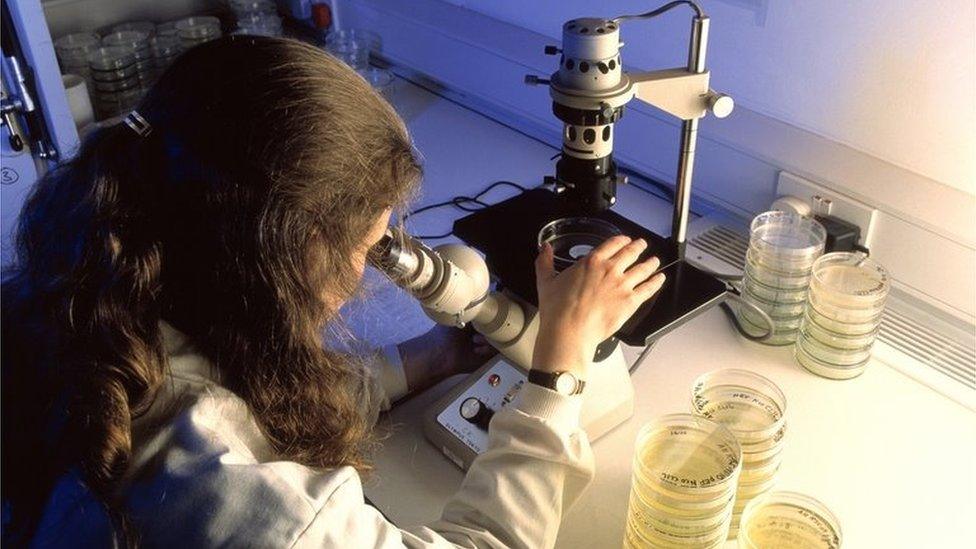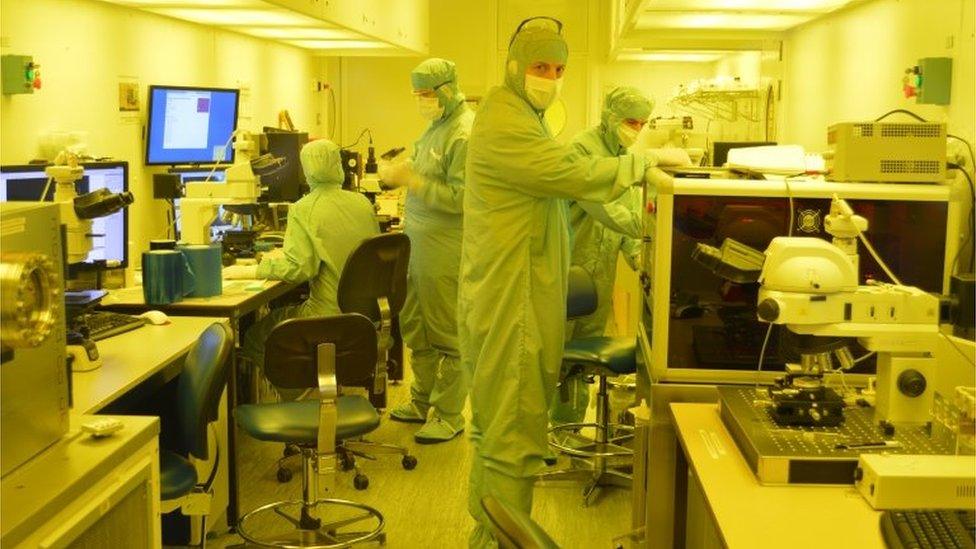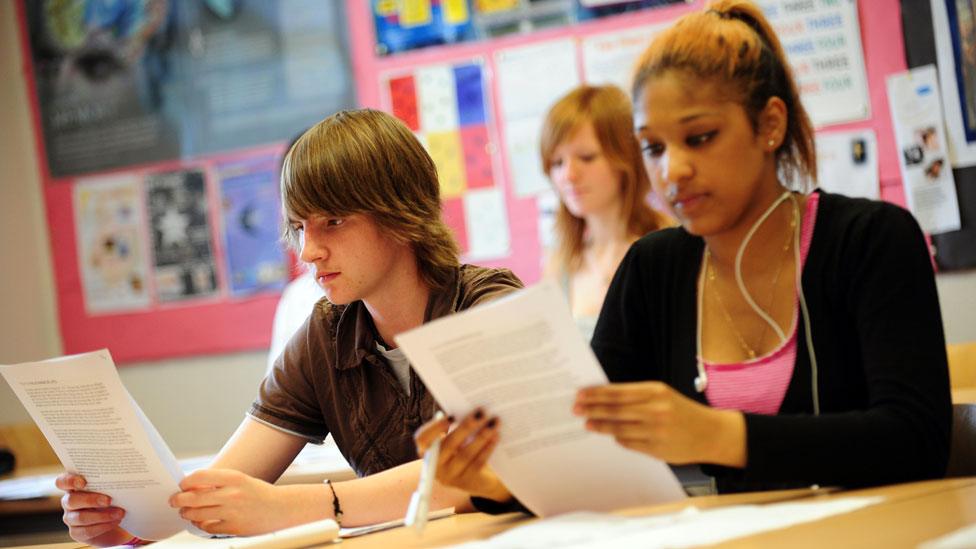Government plans new office to attract scientists to UK
- Published
- comments

A new body, called "Office for Talent", will be set up in No 10 to encourage scientists, researchers and innovators to come to the country, the government has said.
It will be tasked with making immigration "simple, easy and quick" for those wanting to move to the UK.
The initiative comes as the UK seeks to recover economically from coronavirus.
Some scientists have warned that uncertainty over Brexit could lead to researchers leaving the UK.
In addition, the government says its new Research and Development Roadmap will cut "unnecessary red tape" in a bid to encourage scientists, researchers and entrepreneurs to work and study in the UK.
The roadmap includes a £300m investment for upgrading scientific infrastructure and a promise to support "innovators and risk-takers".
The plan also includes extending the time foreign graduates can stay after their PhDs are completed.
And, the government says, the roadmap will support efforts to tackle climate change, develop new medicines, strengthen national security and improve public services.
An Innovation Expert Group will also be set up to review how the government supports research "from idea stage right through to product development".
Under a new graduate route, international students who complete a PhD from summer 2021 will be able to live and work for three years.


Successive governments have boosted science spending over the past 20 years, but none more so than the current administration.
In March, Chancellor Rishi Sunak pledged to more than double spending on UK government research and development (R&D) by 2024.
The pledge means that the government may exceed its target of boosting the proportion of private and public R&D spend from 1.7% to 2.4% by 2027.
But it's more than just about the money.
Never before has science has science been a greater priority right at the heart of government.
The prime minister's chief adviser Dominic Cummings is taking the lead in the project to what Boris Johnson called "supercharge" the science base.
Scientific leaders who have been in discussions with Mr Cummings tell me that second to getting Brexit done, sorting out science policy is his greatest passion.
A proportion of the new money will go to make up for the real-terms cut that some research areas have faced in recent years.
But priority is to turn the UK's world-class science into world-class goods and services that create jobs and benefit the economy.
Successive governments have tried and failed to do this for decades.
I put this point to a senior official drawing up the new plan. Their response was: "They didn't have the kind of money we have now."

The government also says it wants to change the immigration system to extend visa application windows for prospective students and remove study time limits for those at postgraduate level.
No 10 also plans to launch an innovation fellowship programme open to international and national digital and tech talent to help deliver public services

Scientists working in the Graphene laboratory at the University of Manchester
Business Secretary Alok Sharma said: "The UK has a strong history of turning new ideas into revolutionary technologies - from penicillin to graphene and the world wide web.
"Our vision builds on these incredible successes to cement Britain's reputation as a global science superpower."
President of the Royal Society Venki Ramakrishnan said the UK's success had been built on attracting talent from around the world, as well as home grown researchers, and welcomed steps to achieve that.
"Our participation in EU research programmes has benefited everyone and it is good to see the government's renewed commitment to continuing that fruitful association.
"Maintaining the UK's position as a scientific leader is essential to our long term success as a nation and will be crucial to rebuilding jobs and the economy as we recover from the pandemic."
The UK government has said it wants to negotiate its continued participation within the Horizon Europe research programme as part of the post-Brexit talks, however a overall deal between the UK and EU has yet to be reached.
- Published10 April 2020

- Published11 March 2020
